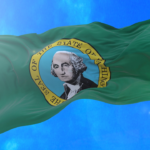The Freedom Foundation has filed a second complaint with the Washington Public Disclosure Commission (PDC) against the “Special Account” operated by the national headquarters of the American Federation of State, County and Municipal Employees (AFSCME) in Washington, D.C.
Though the Special Account paid a minimal penalty and disclosed some of its previously hidden campaign activity as a result of an earlier complaint, the second complaint documents that the Special Account still has not disclosed millions of dollars in contributions received. In addition, the second complaint challenges apparent misrepresentations about the source of its funding made by the Special Account to the PDC in persuading it to impose a minimal penalty for its significant violations.
In a complaint to the PDC in July 2019, the Freedom Foundation documented that AFSCME’s Special Account had: (1) failed to disclose $250,000 in political expenditures made to influence Washington elections; and, (2) failed to disclose the identity of any of the contributors whose money it used to make $790,000 in total political expenditures in Washington. The amount of unreported contributions received by the Special Account topped $80 million.
AFSCME admitted it had failed to report the transactions, but initially claimed it didn’t have any obligation to disclose anything to the PDC. Although the PDC rejected this argument, its enforcement action against the Special Account didn’t even amount to a proverbial slap on the wrist.
Instead of conducting a full investigation, the PDC resolved the complaint by entering into a stipulation in which AFSCME admitted its reporting failures. In its final order, the PDC imposed a $5,250 fine, with $2,000 suspended.
Unfortunately, the PDC’s handling of the complaint was flawed in several respects.
First, the PDC assumed the Special Account had fully disclosed the transactions at issue after the first complaint was filed. While the Special Account did file several additional reports with the PDC, the reports only disclosed $71 million in contributions, $10 million short of its total contributions.
Second, the PDC accepted at face value AFSCME’s assertion that the Special Account did not receive contributions from sources other than AFSCME itself. The Freedom Foundation debunked this claim in a supplemental complaint filed with the PDC in August, which documented that the Special Account received contributions from several other sources.
The supplemental complaint also explained at length, with accompanying documentation, how AFSCME benefitted from its failure to disclose the source of the Special Account’s contributions, an aggravating factor the PDC is directed to consider when assessing penalties.
Nonetheless, though the supplemental complaint was posted to the PDC’s website, the PDC staff memo to the commission did not include or mention the supplement, meaning it was not reviewed by the commissioners before they decided to accept the stipulated agreement.
Finally, the penalty imposed by the PDC was exceedingly trivial compared to the magnitude of the Special Account’s violations.
The Special Account completely failed to disclose $250,000 in expenditures and $81 million in contributions over a five-year period. The $3,250 penalty amounts to only .00004 percent of the amount not disclosed by the Special Account — a fraction of even a credit card processing fee.
Business groups, citizen activists and conservative organizations can’t reasonably expect to receive similar leniency from the PDC.
The second complaint points out that the Special Account has yet to come into compliance with state law, as it has still failed to report about $10 million in contributions to the PDC. It also explains how the Special Account has apparently failed to disclose several contributions received from outside sources, despite assertions to the contrary it made to the PDC previously.
At minimum, the suspended portion of the original penalty should be collected by the PDC, but additional enforcement action is also warranted given the Special Account’s dismissive attitude towards compliance with Washington’s campaign finance laws.
Sadly, the PDC’s resolution of the first Special Account complaint was the latest in a growing list of examples of the agency choosing not to take campaign finance violations by labor unions seriously.
- In June 2019, the Freedom Foundation sued the PDC for failing to take action against the Service Employees International Union’s (SEIU) Political Education and Action Fund (PEAF). SEIU PEAF failed to disclose $2.8 million in contributions, an amount the PDC admitted was “significant.” But instead of pursuing enforcement action, the PDC merely issued a warning letter. SEIU PEAF had already received warnings from the PDC and been sued for breaking Washington campaign finance laws, but the PDC turned a blind eye to its persistent noncompliance.
- In May 2019, the Freedom Foundation filed a complaint with the PDC against the Washington State Council of County and City Employees (WSCCCE). The complaint alleged that WSCCCE: (1) failed to report $36,000 of in-kind contributions to its political committee; (2) reported receiving at least 35 cash contributions totaling at least $379,566 after the disclosure deadlines established by law, totaling at least 893 late days; and, (3) filed at least 16 forms regarding its expenditures after legal deadlines, totaling 79 late days and reflecting $163,168 in expenditures. WSCCCE admitted the violations, though it argued the amount of unreported in-kind contributions was lower. The PDC resolved the complaint without an investigation by issuing a warning letter.
Hopefully the PDC uses the opportunity provided by the second complaint against AFSCME’s Special Account to correct its excessive lenience the first time around.







